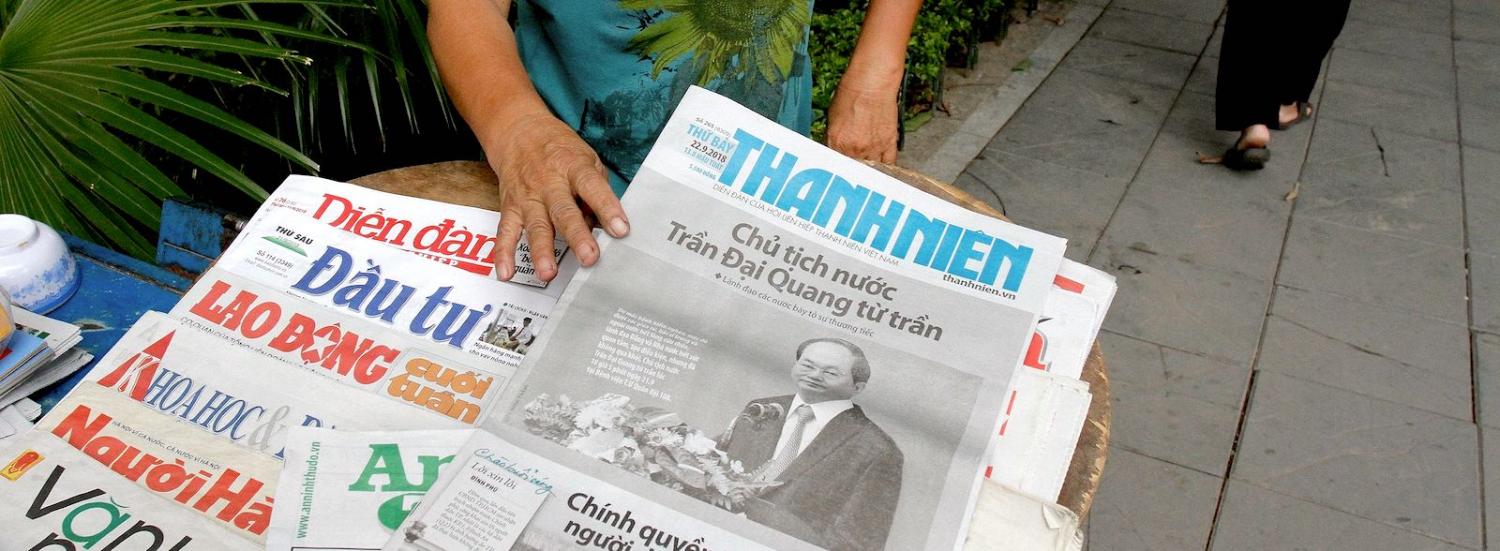The death of Vietnamese President Tran Dai Quang was unexpected by the general public: he was due to address the UN General Assembly this week, and Vietnam’s one-party system has a long tradition of keeping a veil of secrecy around the health status of its top leaders.
But Quang’s passing cannot have been a surprise among Vietnam’s key political stakeholders. After all, he had appeared unwell on television for months, and in his final couple of days was unstable on his feet. Yet, after the official pronouncement of his death, speculation has swirled among commentators about the implications for political stability in Vietnam. Some seem to venture into conspiracy territory – a rumour circulated on social media that Quang was poisoned while visiting China.
While there were calls to expand the powers of the presidency before the amendment of the 1992 constitution in 2013, few were realised.
Some Vietnam watchers, including David Hutt and Huong Le Thu, have suggested that Quang’s sudden passing has created a power vacuum. If history is a guide, however, this is unlikely to be the case.
If a power vacuum existed, it was during the period just past: Quang has been seriously ill since July 2017, 15 months into his five-year term. Quang went to Japan six times for treatment, and the Politburo would have known and come to terms with his terminal prognosis by arranging for a smooth transition. Filling Quang’s vacancy will likely result in a reshuffling of portfolios among the top party leadership. Political jockeying must have been underway for a while, so it is unlikely any major disruption or chaos will now ensue.
One thing on which many would agree, however, is that Quang’s legacy is mixed at best. This is partly due to the largely ceremonial function of the presidency. While there were calls to expand the powers of the presidency before the amendment of the 1992 constitution in 2013, few were realised. And after the power struggle in 2016, a collective leadership, including Quang, National Assembly Chair Nguyen Thi Kim Ngan and Prime Minister Nguyen Xuan Phuc, was reconstituted with party chief Nguyen Phu Trong as first among equals.
As the leading Vietnam watcher Carl Thayer has noted, Quang was the “quintessential ‘grey man’ who blended into the background of Vietnam's collective leadership.” It is worth noting that besides constitutional constraints and his poor health, Quang’s brief tenure as president coincided with corruption scandals in the Ministry of Public Security where he served as Minister from 2011 to 2016.
To some, Quang appeared to be a pro-US economic reformer. To others, he was a conservative hardliner with little tolerance for dissidents. These contrasting views might give him too much credit, while at the same time oversimplifying the dynamics within the Communist Party of Vietnam’s top echelon. It is just hard to imagine he, or anyone for that matter, could singlehandedly sway Vietnam’s polity. It is virtually unthinkable to posit that presidential power largely depends on one’s personality. In Vietnam’s politics, clientelism is a defining factor, so relationships trump personalities all the way.
There is speculation about what the next president will bring to the table. Nguyen Thien Nhan, currently Party Secretary of Ho Chi Minh City, is a rumoured front runner for the position. Some analysts think Tran Quoc Vuong, Executive Secretary of the CPV’s Secretariat, is also throwing his hat in the ring. And Minister of Defence Ngo Xuan Lich is probably on the shortlist.
In the end, whoever Quang’s successor is will most likely reflect the current party line, and focus on strengthening the party’s legitimacy. Vietnam’s leaders face many challenges, ranging from anti-corruption, maritime sovereignty, global economic integration for development to reining in the impact of social media, to name a few. Quang’s passing will not result in a power vacuum; his vacancy will be filled by the collective leadership and there will be minimal policy change.

